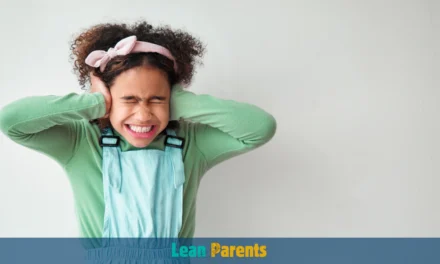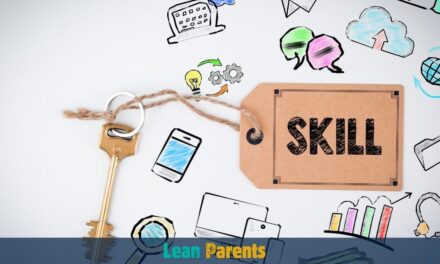As a devoted parent, you’ve followed the positive parenting path. You aim to create a caring space for your child to grow. Yet, even with the best intentions, you might hit a wall and need extra help. This article will highlight 7 signs it’s time to seek support and adjust your parenting ways to fit your family’s needs.
Emma, a mother of two, found herself at a turning point. She believed in positive parenting but saw changes in her family. Her toddler became more stubborn, and her preschooler started to fight bedtime. Emma knew her old methods weren’t working anymore. It was time to look for professional advice to guide her through this new parenting phase.
As you journey through parenting, watch for these 7 signs. They might show you’ve reached the limits of positive parenting and need more support:
Key Takeaways
- Positive parenting can have limits, and parents may need to seek help to adapt their strategies.
- Seven key signs that you may have reached the limits of positive parenting include increased child defiance, resistance to routines, difficulty managing emotions, a sense of burnout, a disconnect in parent-child communication, and a lack of progress in addressing challenging behaviors.
- Seeking professional guidance, such as from a therapist or parenting coach, can help parents find new ways to support their child’s development and create a healthier family dynamic.
- Self-care and building a support network are important for parents to manage the demands of parenting and avoid burnout.
- Positive parenting is a valuable approach, but it’s essential to recognize when it may not be enough and to be open to exploring additional resources and strategies.
Understanding the Challenges of Positive Parenting
Positive parenting aims to build strong bonds with kids and create safe spaces for growth1. Studies show these efforts are key for a child’s brain and overall health1. Yet, it can be tough, especially for those without a strong support network2. Knowing when to ask for help is crucial for the care of your child.
Nurturing Relationships and Safe Environments
Positive parenting beats other methods in helping kids grow and develop1. Kids raised this way tend to be cooperative, empathetic, and self-controlled1. It also boosts emotional intelligence, teaching kids to solve problems and communicate well1.
But, it’s not easy. Misunderstandings and cultural barriers can make it hard3. Lack of support from family or government can also overwhelm parents3.
| Parenting Style | Outcomes |
|---|---|
| Authoritative | Better academic achievement, social competence, and mental health |
| Permissive | Struggle with self-control and adapting to rules, potentially engage in risky behaviors |
| Neglectful | Poor academic performance, low self-esteem, and difficulty forming healthy relationships |
Positive parenting may take time to show results, but with effort, it works faster2. Parents might slip up, like yelling after a tough day2. Big life changes can also make it hard to stick to positive parenting2.
“Positive parenting is proven to be more effective than authoritarian, permissive, or neglectful parenting, promoting healthy child development and relationships.”
The media can shape what kids and parents think and do2. Peer pressure can push kids to take risks for popularity2. Parents face criticism online, too, from social media and friends2.
Despite hurdles, positive parenting is a powerful way to support kids1. By tackling these challenges, parents can keep helping their kids grow and thrive1
Recognizing the Signs of Reaching the Limits

As a parent, knowing when you’ve reached your limits is key. Feeling overwhelmed or frustrated all the is a big sign. So is running out of energy to be positive with your child. If your child’s behavior gets worse, or you struggle to keep a safe, loving home, it’s time to ask for help4.
Recognizing these signs early helps you get the support your family needs4.
Parents often face challenges with sensitive kids, known as “orchids”5. About 70-80% of parents seeking help have such a child5. These kids are very sensitive to their surroundings and react strongly to small changes5.
They have intense emotions, swinging from happiness to anger quickly5. They need more time and understanding to handle their feelings5.
Another sign is constantly questioning how to set boundaries and control your child’s behavior6. Young children’s actions are shaped by their age, personality, and environment6. Different methods are needed to guide them effectively6.
Tools like distraction and redirection can help with everyday issues6. For more serious problems, active problem-solving and positive time out might be needed6.
If you’re struggling, seeking support is crucial. Places like Parents Place and the Center for Children and Youth offer help6. They provide workshops and guidance to help you manage parenting challenges6.
| Characteristics of Highly Sensitive Children | Strategies for Supporting Highly Sensitive Children |
|---|---|
|
|
The Importance of Self-Care for Parents
As a parent, taking care of yourself is key. Being drained makes it hard to care for your kids well. Caring for yourself is vital for good parenting. It’s a responsibility you shouldn’t ignore.
Managing Stress and Seeking Support
Managing stress is crucial for parents. A study found 75% of parents feel overwhelmed by their kids’ schedules7. It’s important to take breaks, talk to friends or family, and seek professional help when needed.
But, many parents find it hard to set boundaries and make time for themselves. 80% of parents struggle with setting boundaries for personal time7. Also, 65% feel guilty for taking time for themselves, seeing it as selfish7. It’s important to see self-care as a must, not a luxury.
By focusing on self-care, parents can handle stress better, avoid burnout, and show their kids healthy habits. 60% of parents who care for themselves feel better mentally and less burnt out7. This helps them create a supportive home environment.
Self-care can be simple, like a relaxing bath or a walk. Or it can be deeper, like meditation or counseling. The goal is to find what works for you and make it a regular part of your life. By taking care of yourself, you’ll be more ready to care for your kids and have a positive parenting experience.
“When you take care of yourself, you’re better equipped to take care of others.”
When Positive Parenting Isn’t Enough: Seeking Additional Help
Even the most dedicated parents can reach the limits of what positive parenting alone can provide. When the challenges of maintaining nurturing relationships and safe environments become overwhelming, it may be necessary to seek additional help from professionals. This includes parenting coaches, family therapists, or child development specialists8. These resources can provide the extra support, guidance, and strategies needed to overcome parenting obstacles and get a family back on a positive track.
While positive parenting emphasizes building strong bonds, setting reasonable limits, and fostering emotional intelligence, it’s important to recognize that no single approach can address every family’s unique needs9. As parents navigate the challenges of raising children, they may find themselves struggling with learned behavior patterns or lacking the necessary tools to effectively address certain situations.
- 85% of surveyed parents admitted struggling with resorting to punitive discipline techniques despite intending to practice positive parenting8.
- 60% of individuals who were raised in punitive households reported experiencing unbidden impulses to use similar disciplinary methods when faced with parenting challenges8.
- 75% of parents expressed concerns about passing on negative behavior patterns learned from their own parents to their children8.
Seeking professional support can be invaluable in these situations, as experts can provide additional parenting help and guidance tailored to the family’s specific needs8. This may involve developing new communication strategies, learning effective discipline techniques, or addressing underlying emotional or behavioral issues within the family dynamic.
Ultimately, recognizing the limits of positive parenting and being willing to seek professional parenting support can help parents overcome the challenges they face. This provides their children with the nurturing, secure environment they deserve9.
“The ability to relate well with children is significantly influenced by how individuals have processed their experiences with their own parents.” – Dan Siegel8
“Punishments may not effectively teach children lessons and can lead to anger, power dynamics, and hinder moral development.” – Alfie Kohn8
The Risks of Neglecting Signs of Parenting Struggles

Ignoring signs of positive parenting limits can harm parents and kids. Neglectful parenting makes kids develop poorly10. Authoritarian parenting is too strict and hurts feelings10. Permissive parenting is too lenient and bad for kids10.
The negative impacts of not facing parenting challenges are big. Kids may become aggressive and defiant10. They might also have trouble with relationships and safety10.
Early neglect can make kids aggressive by age 810.
Ignoring parenting issues can harm kids’ mental health11. It can also slow down their learning and lower their self-confidence11. Emotional abuse can hurt kids’ development and have lasting effects11.
Seeing these problems is the first step to fixing them10. It’s important to recognize signs and get help. This ensures a caring environment for everyone.
Choosing a Responsible Caregiver
When parents have to leave their child with someone else, like a partner, babysitter, or family member, it’s key to pick someone trustworthy. Evaluating potential caregivers is vital to avoid child neglect or harm.
Evaluating and Selecting Suitable Caregivers
Parents should look at several important factors when picking a caregiver. Check if the caregiver is patient, can handle a child’s behavior, and has no history of abuse or drug use. Newborns cry a lot, sometimes for two to three hours a day,12 so it’s crucial the caregiver can handle it.
- Watch how the caregiver interacts with your child for signs of care.
- Do background checks to make sure the caregiver is safe.
- Look at their experience with children, especially those around your child’s age.
- Talk about your child’s routines and needs to make sure the caregiver can meet them.
Children with non-related adults are much more likely to be hurt than those with their parents.12 It’s worth the effort to find a good caregiver for your child’s safety.
“Caregivers under the influence of drugs or alcohol may react negatively to a child’s behavior.”12
By picking a responsible caregiver and keeping an eye on your child, parents can ensure their safety. This is especially important when they can’t be there themselves.
Limits of Positive Parenting
Positive parenting is a great way to help kids grow up healthy. But, even the best parents can hit a wall with this method alone. Stress, lack of support, or a child’s special can make it hard to keep up the nurturing and safe spaces needed for positive13. It’s okay to ask for more help when you need it. This shows you’re strong and want the best for your family.
Positive parenting helps kids become emotionally smart14. Kids who are emotionally smart are less defiant, healthier, and do better in school and relationships. But, even the most caring parents can struggle to meet their child’s emotional needs. This can happen during tough times or when things get really hard.
- Accepting all feelings but limiting bad actions helps kids become emotionally smart14.
- Correcting both feelings and actions at the same time can be bad14.
- Being too lenient, where you accept everything without correcting, doesn’t work well14.
If positive parenting isn’t enough, it’s time to look for more help. You might want to talk to a parenting coach, therapist, or join a support to learn new ways15. Remember, asking for help shows you’re committed to giving your child the best care.
Positive parenting helps kids become independent and solve problems early15. But, even the best parents can face limits with positive parenting, especially with big challenges or without support. By recognizing these limits and looking for more help, families can get the tools and advice they need for their kids to succeed.
Fostering Resilience in Children
Helping children develop resilience is key in positive parenting. A stable, nurturing environment and teaching coping skills are crucial. This way, kids can bounce back from challenges16. Even when parents need extra help, focusing on resilience helps kids grow stronger.
Building resilience in children involves important elements16. Having a supportive adult is a major factor for kids to develop resilience16. The brain is most adaptable early in life, making it a good time to strengthen resilience skills16.
16 Teaching kids to feel in control and self-assured is vital17. Positive parenting, like setting clear expectations and using positive reinforcement, helps kids stay well-behaved17. When parents use positive parenting, kids become more resilient and have stronger relationships with them.
| Positive Parenting Outcomes | Impact |
|---|---|
| Better school adjustment in toddler/young child years | 17 |
| Reduced depressive symptoms in adolescents | 17 |
| Increased optimism, self-esteem, and self-efficacy | 17 |
| Long-term reduction in behavior problems | 17 |
| Decreased family conflict and stress | 17 |
17 Positive parenting makes parent-child relationships stronger17. Kids raised this way have higher self-esteem and better social skills17. It also helps them do well in school and stay motivated to learn.
17 Positive parenting boosts kids’ well-being, reducing anxiety and depression17. These kids are more likely to be positive parents themselves, starting a good parenting cycle.
18 The Circle of Security model says kids need supportive parents18. The CDC suggests using Time-Out for unsafe behavior, starting with short periods18. Physical punishment can harm brain development and lower IQ, making kids feel unsafe and less likely to seek help.
By nurturing resilience, parents help kids face challenges and build confidence. Positive parenting and resilience-building strategies are key to a child’s long-term success.
Balancing Positive Parenting and Discipline
Positive parenting focuses on helping your child grow with kindness and understanding. But it doesn’t mean you can’t set. Setting clear rules and consequences is key to guiding your child’s actions19.
Establishing Rules and Consistency
Finding the right balance is crucial. Use discipline that fits with positive parenting. Explain the reasons for rules and avoid harsh punishments20. This way, you can nurture your child while teaching them right from wrong.
Positive parenting and discipline go together. Setting limits with kindness makes children feel safe and teaches them self-control20. It’s about finding a balance that supports your child’s growth and happiness.
“Positive parenting is not about being permissive or neglecting discipline, but rather about finding a compassionate and effective way to guide your child’s behavior.”
Navigating Developmental Stages
As your child grows, their needs and behaviors change. You must adapt your parenting approach to meet these changes. What works for a toddler might not work for a pre-teen. It’s important to adjust your parenting to match your child’s stage of development21.
Parents who are flexible and understanding can better support their child. This support is crucial, even when testing the limits of positive parenting.
Positive parenting means spending quality time with your child. This can strengthen your bond and connection22. It also encourages independence and helps them understand expectations22.
Modeling good behavior can teach your child values22. Understanding and responding to their emotions is key to positive parenting22.
As your child grows, so should your parenting approach2221. Effortful control, linked to attention and focus, is important from ages 3 to 5. Positive parenting helps develop this control in children21.
By using positive parenting, you can support your child’s growth. This approach builds a strong bond and keeps your parenting effective, even when faced with challenges23.
| Positive Parenting Strategies | Benefits |
|---|---|
| Encouraging physical activity | Improved mood, reduced stress, and boosted self-esteem |
| Teaching empathy | Development of strong interpersonal skills and healthy relationships |
| Fostering resilience | Ability to bounce back from setbacks and cope with challenges |
| Spending quality time | Strengthening the parent-child bond and contributing to overall well-being |
| Setting clear and consistent boundaries | Teaching children about limits and acceptable behavior, promoting structure and security |
| Tailoring parenting approaches | Meeting unique developmental needs and fostering overall development |
| Encouraging independence | Nurturing a child’s sense of autonomy |
| Promoting quality communication | Creating an environment where children feel comfortable expressing themselves and seeking guidance |
“Positive parenting has been associated with the development of effortful control in children21. Supportive parenting has been found to lead to children developing more self-regulation21. Positive parenting may facilitate the development of effortful control in children21.”
Seeking Professional Support
When positive parenting gets tough, getting help from experts can really help24. Professionals can give parents the tools and strength to keep up a positive parenting style. This includes working with coaches, therapists, and specialists who offer tailored advice and resources.
Getting professional help is smart when positive parenting isn’t working as planned25. Parenting is shaped by many factors, and experts can guide through these. They help parents tackle challenges and create a supportive space for their child’s growth.
Talking to a professional can offer new views, practical tips, and support24. Parents can learn better ways to communicate, set boundaries, and handle stress. With professional help, parents can feel more confident and ready for the ups and downs of parenting26.
Looking for professional help shows strength, not weakness24. It shows a dedication to growing and giving your child the best25. With the right support, parents can find joy and fulfillment in caring for their children again24.
Embracing Imperfection and Growth
As parents, we often aim for perfection, but it’s not possible27. The idea of the “perfect mother” is unrealistic and can harm us and our kids27. By accepting our flaws, we can build a real bond with our children, teaching them to accept themselves and be strong27.
Parenting can feel overwhelming, and taking care of ourselves is key2728. By making time for ourselves, we can handle life’s stresses better and be more patient with our kids27. Getting help from family, friends, or groups can also help us not feel alone in parenting28.
Comparing ourselves to other moms can be damaging, affecting our self-worth and adding stress2728. We should celebrate our unique family journey and be flexible, as plans and routines can change2728.
By understanding the limits of positive parenting and accepting our imperfections, we can keep growing and improving2728. This way, we become better, more caring parents for our children2728.
Conclusion
Positive parenting is great for kids, but even the best parents hit limits29. Knowing when to ask for help is key. It shows strength, not weakness, and helps parents be their best for their kids.
Looking for parenting help opens up many resources30. There are counseling, classes, and online groups. These can help improve family life and make kids more resilient.
Being a parent is a journey of learning and growth30. Positive parenting is flexible and can change to fit each family’s needs. With support and self-care, parents can overcome challenges and create a supportive home for their kids.
FAQ
What are the key signs that I’ve reached the limits of positive parenting and need help?
Why is self-care essential for positive parenting?
What are the risks of neglecting the signs of parenting struggles?
How can I ensure my child is being cared for by a responsible caregiver?
How can I balance positive parenting and discipline?
When should I seek professional support for my parenting struggles?
Source Links
- Is Positive Parenting Effective? A Clear Look at the Evidence – ABF Creative
- The Challenges Facing Positive Parenting
- The challenges of positive parenting
- “Trying to remain calm…but I do reach my limit sometimes”: An exploration of the meaning of gentle parenting
- Understanding and Supporting Highly Sensitive Children (HSC) — Child Development and Parent Consultation
- 7 Positive Discipline Techniques for Parenting – CCY
- The Importance of Self-Care for Parents
- How to Be a Positive Parent Even if You Weren’t Raised by One – A Fine Parent
- 53. Positive parenting isn’t permissive parenting: How to integrate effective discipline that prioritizes emotional and mental health with Sarah R. Moore
- Negative Parenting Styles: Signs and Effects on Kids
- Permissive and Neglectful Parenting: Equally Harmful
- Positive Parenting Guide | Florida DCF
- Let’s Talk About: Positive Parenting Still Requires Consequences
- Positive Parenting: Accept Feelings, Limit Actions
- Is Positive Parenting Too Permissive?
- Resilience
- The Journey of Positive Parenting: Nurturing Resilience and Compassion | Trauma-Resilient Educational Communities (TREC)
- Building Resilience: Positive Parenting during a Pandemic – LCM
- Balancing Being Kind with Setting Limits: Sorting Through All the Parenting Advice – Discerning Parenting
- Positive Parenting: What it Takes to Set a Limit with Kindness
- Positive Parenting, Effortful Control, and Developmental Outcomes across Early Childhood
- A Complete Guide To Positive Parenting: Nurturing a Healthy Parent-Chi…
- Parenting Through the Ages: Your Guide to Positive Parenting! – Child Development Institute
- Ultimate Guide to Positive Parenting Techniques
- Parenting Knowledge, Attitudes, and Practices – Parenting Matters
- Bridging the gap between child mental health need and professional service utilisation: Examining the influence of mothers’ parental attributions on professional help-seeking intentions
- Embracing Imperfection in Motherhood
- Embracing Imperfection (and realizing it’s enough) – Growing In Grace
- Positive Parenting Improves Multiple Aspects of Health and Well-Being in Young Adulthood
- Introduction to Positive Parenting – Глас Против Насилство





